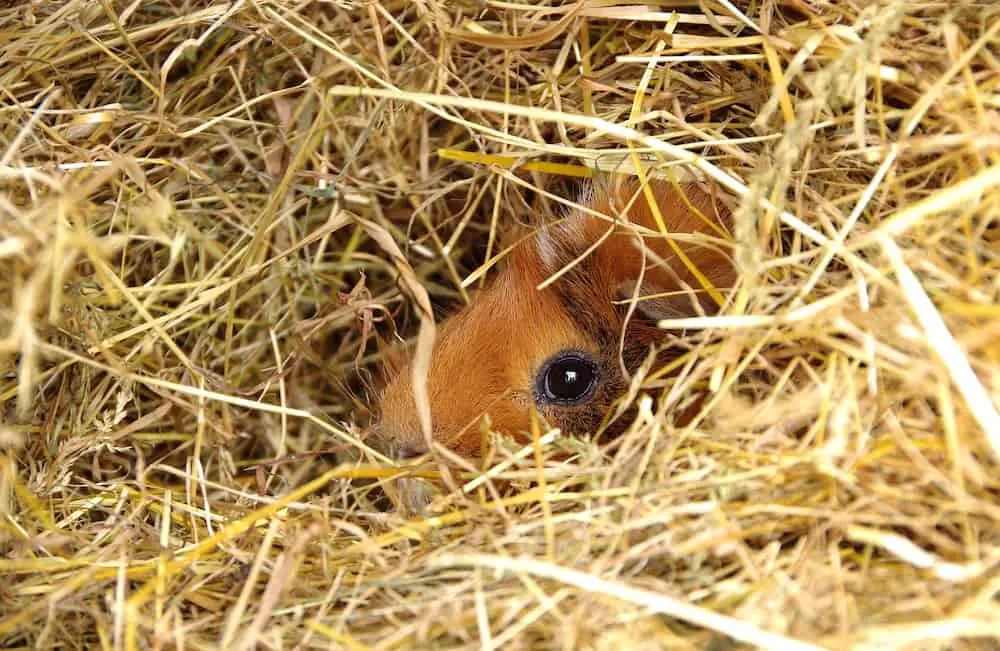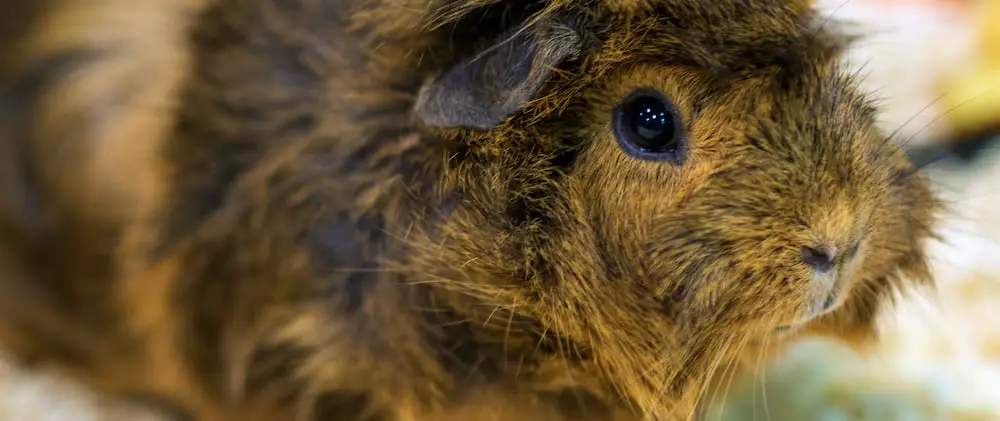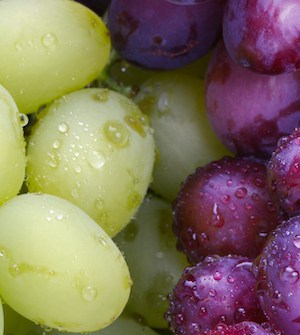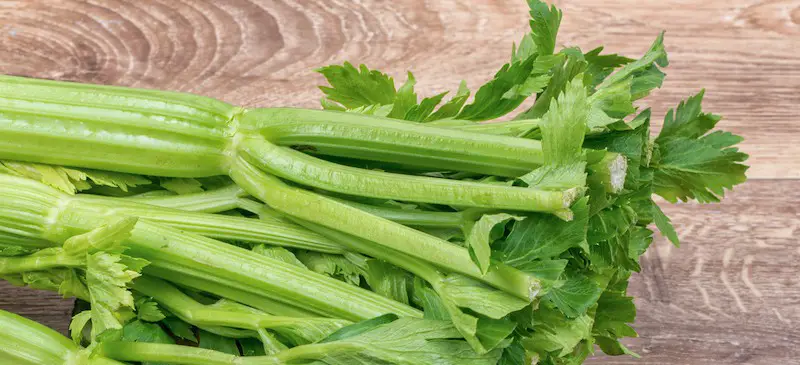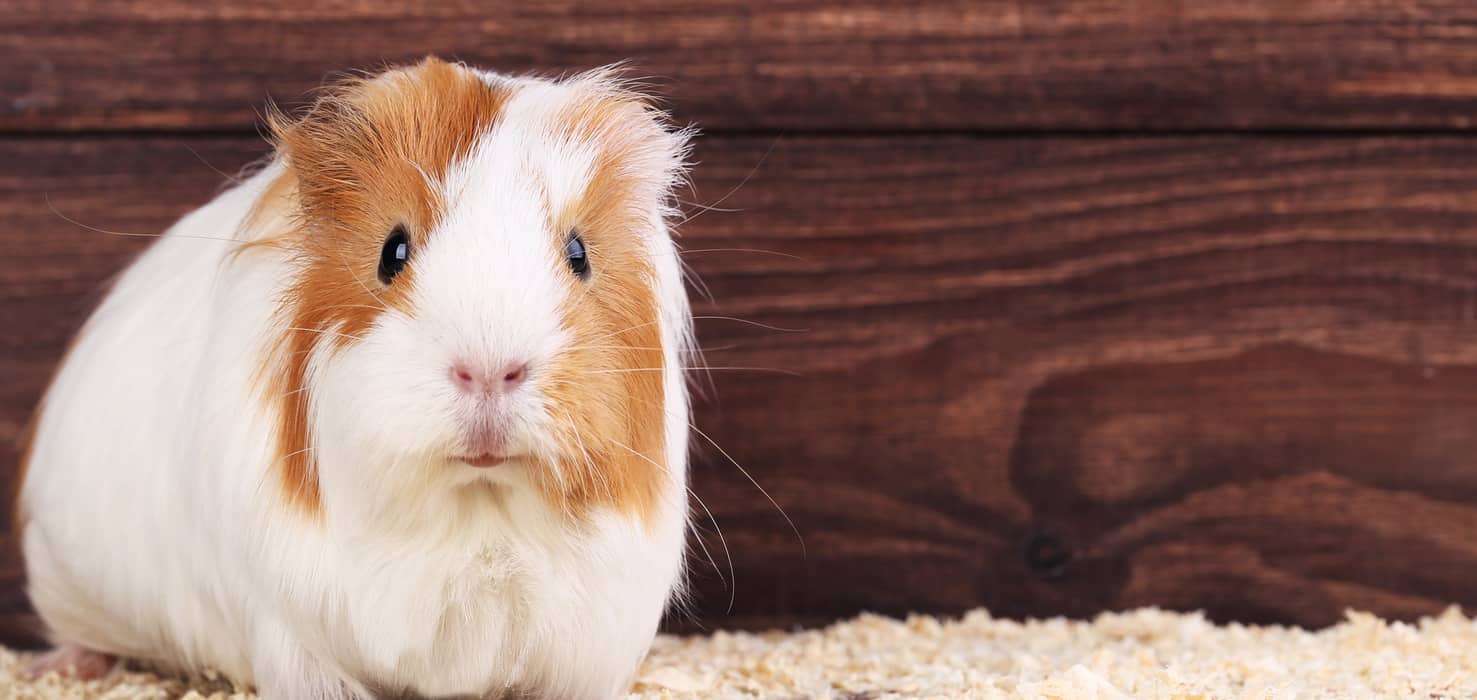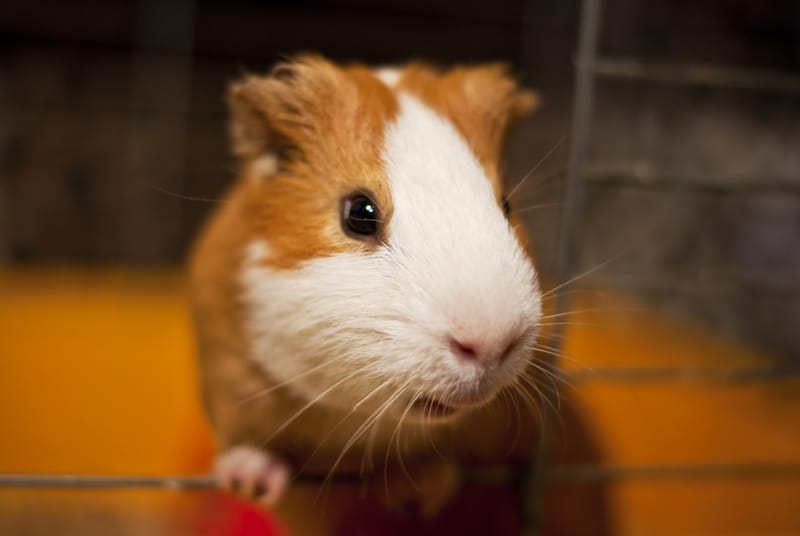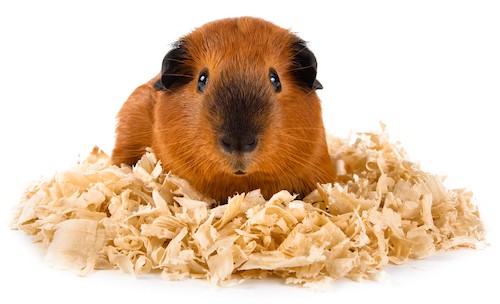Last Updated on
There is a lot of healthy food for guinea pigs in the market to choose from, which means that you'll have an array of great choices—which can ease your worry if you're a first-time guinea pig parent.
Fortunately, it's also not that hard to find the best food for your guinea pig because they're not exactly picky-eaters when it comes to time to chow down.
Regardless of their need (or lack thereof) for an elite section, there are still so many different brands of guinea pig foods to pick from which vary in nutritional value, taste, and price.
To help you sort out which are best for your growing guinea pig, this guide will go through the various features of everything you need to know.
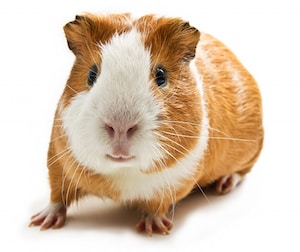
Giving your guinea pig healthy food with high-quality ingredients can enable them to live a longer, healthier, and happier life.
Here's what's coming up:
*PetitePetsWorld strives to be a valuable resource for pet owners. We select and review all products independently; however, we may earn affiliate commissions when you buy through links on our site.
Best Food for Guinea Pigs – TOP 3 in 2021
Wild Harvest Advanced Nutrition Diet for Guinea Pigs
Key Featutes
- High crude fiber content that promotes digestive health
- Essential vitamins like vitamins A and B-12
- Dried fruits and vegetables for nutritional benefits
- A mix of natural ingredients to encourage natural foraging behavior
- Advanced Nutritional Formula designed especially for guinea pigs
- Formulated with Vitamin C - to provide your pet with its daily dose
Summary:
Wild Harvest's Advanced Nutritional Diet for Guinea Pigs has been designed to provide your pet with a balanced and nourishing daily diet.
Guinea Pigs love to eat, and providing them with healthy food is essential. Wild Harvest's Guinea Pig Diet not only includes all the vital nutrients but also promotes natural foraging behavior in guinea pigs for mental stimulation.
It also includes a high fiber content to aid in maintaining optimum digestion. It's a known fact that guinea pigs are unable to produce their own Vitamin C. This is why Wild Harvest's diet has been specially formulated with Vitamin C to protect your pet from health complications like scurvy.
This product also contains essential ingredients for guinea pigs like Timothy Hay, which is an excellent source of protein. It also includes nutrients, like niacin and biotin, which help keep your pet happy and healthy.
Lastly, the Fruit Amp combines all the required fruits and vegetables for a healthy cavy diet to provide additional health benefits and to make sure your guinea pig gets all the antioxidants and vitamins it needs.
Pros
+ Nutritious with important vitamins and minerals
+ Premium blend with great taste
+ Easy to handle packaging
+ Resealable packaging for lasting freshness
+ Fruits and vegetables for a balanced and healthy diet
+ Added vitamin C
+ Good protein to fiber ratio
+ Different sizes available
Cons
- May not be the best option for selective eaters
- Not ideal for obese guinea pigs
Kaytee Fiesta Guinea Pig Food
Key Featutes
- Different shapes and sizes to aid to promote foraging habits
- Nutritious and has a great taste
- Antioxidants support the immune system
- Contains prebiotics and probiotics for improved digestion
- Promotes dental health
- Added vitamin C
- Blend that has especially been designed for guinea pigs
- All-natural ingredients with no artificial flavoring or color
- DHA omega 3 fatty acids that boost heart and brain function
Summary:
Kaytee is a well-known name when it comes to pet nutrition and diet. Kaytee's Fiesta Guinea Pig Food is a gourmet blend of Alfalfa Hay, vegetables, fruits, and all other nutritional sources that are essential to promote the health of your pet.
Each morsel is carefully made and sized to maximize taste and to make the food easy to eat. Fiesta Guinea Pig Food also comes in different shapes and sizes to encourage natural foraging behavior.
It not only combines a blend of ingredients like Alfalfa Hay, peas, and carrots, but it includes health-promoting sources like DHA Omega 3 fatty acids. It's also one of the very few brands that offer prebiotics that help in boosting your pet's digestion.
Kaytee's Fiesta Gourmet Diet also has good crude fiber and crude protein percentage, along with a 450 mg/kg min percentage of ascorbic acid. Ascorbic acid provides for the vital daily intake of Vitamin C that guinea pigs require. All in all, it's a complete package for an adult guinea pig's dietary needs.
Pros
+ Kaytee is a veterinarian-recommended brand.
+ Available in small, medium, and large packaging
+ Easy to handle packing
+ It includes prebiotics and probiotics
+ It includes DHA Omega 3 Fatty Acids
+ No artificial flavorings or colors
+ It is naturally preserved for extended use
+ This food is easy to chew, and it promotes dental health
Cons
- Does not contain Timothy Hay
- Not ideal for obese guinea pigs
Vitakraft Guinea Pig Food
Key Featutes
- Made with Timothy Hay and has a high fiber content
- It is loaded with prebiotics to enhance digestion
- DHA Omega 3 and 6 Fatty Acids to promote health
- Formulated especially for guinea pigs
- Promotes foraging habits
- Natural oils and flax seeds to help keep skin healthy
Summary:
Vitakraft's Guinea Pig Food is formulated with Timothy Hay, which is considered a vital ingredient of a guinea pig's diet. Timothy Hay has high fiber content and is full of necessary proteins that aid in maintaining your pet's health.
In addition to this, Vitakraft's guinea pig food blend includes DHA Omega 3 and 6 Fatty Acids. These help in heart function, brain development, and keeping your pet's skin and coat healthy and shiny.
The product also contains other essentials like probiotics that help in keeping the digestion on track. Apart from all this, the blend also combines vitamins and minerals such as Vitamin C, Vitamin A, Vitamin E, Phosphorous, Folic Acid, and Potassium.
It contains a minimum of 16% crude protein and 22% of crude fiber, along with 300 mg/kg of Ascorbic Acid, making it a right combination of all the vital elements that a healthy guinea pig diet should have.
Vitakraft has proven itself to be a viable and trustworthy brand when it comes to a small pet diet. Their guinea pig food blend makes use of all the best sources of nutrients such as fruits, vegetables, and plant-based fatty acids to create a mix that offers a complete solution to your pet's dietary needs.
Pros
+ Complete nutrition for guinea pigs
+ Timothy Hay as the main ingredient
+ High fiber content
+ Encourages foraging
+ Includes DHA-omega fatty acids
+ Contains antioxidants and minerals
+ Contains flaxseeds and natural oils for skin health and a shiny coat
+ It has a high bioavailability of nutrients
+ Good sized packaging options
Cons
- The resealing plastic zip is not user-friendly
- Vitamin C percentage not as high as some other brands offer
Types of Food for Guinea Pigs
Depending on their previous ownership, you might want to do a little bit of a "history" research on your pet on what they're most accustomed to. This can play a part in which type of food to choose from at the beginning of your ownership with your guinea pig.
When it comes to choosing which food to invest in, a guinea pig can either feed on
- store-bought food or
- fresh food.
To help you choose which is best for your pet, here are a few details of each type:
Guinea Pig Hay and Pellets - Store-bought food
For a convenience factor and because of open-guided nutrition information, most guinea pig owners choose to feed their pet store-bought hay and pellets.
When it comes to hay products, a blend of the orchard, timothy, and oat hay is preferred.
Alfalfa hay is also acceptable, but it should not be the main part of your guinea pig's diet because it contains too much calcium. To help stay clear of mildew and mold, guinea pig hay should be stored in a cool and dry place in between feeding times.
It is important to supplement your pet's hay with small amounts of pellets that are high-quality, plain, and healthy. The pellets you purchase should also be specifically made for guinea pigs since there are so many different kinds.
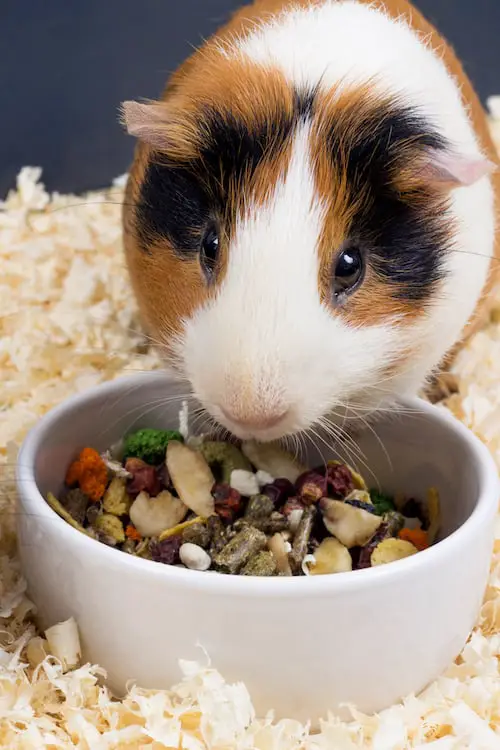
Fruits and Vegetables for Guinea Pigs - Fresh food
Fresh veggies and fruits are great supplements and treats for your guinea pig if you're deciding to go au naturale with your pet's diet.
You can use these fresh foods as treats when training or bonding with your pet.
The following are examples of the fresh foods that are safe to feed your guinea pig:
- Watermelon
- Tomatoes
- Strawberries
- Lettuce
- Parsley
- Green peppers
- Cantaloupe
- Blueberries
- Cucumber
- Bananas
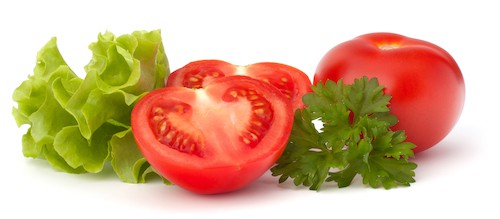
When it comes to ratio, there should be more vegetables than fruits in your guinea pig's diet. This is because fruits are more of a sweet treat to your pet.
If you're giving fruits as a treat, check the cage at the end of the day and remove any leftovers to help prevent rot or mold development.
How Much Food Do Guinea Pigs Need?
Generally, guinea pigs don't tend to overeat, but it is important always to feed them a healthy and balanced diet comprising of hay, pellets, fresh fruits, and vegetables.
- A 1/8 cup of pellets with fresh vegetables and an unlimited amount of fresh hay is enough for the day. Guinea pigs need to continuously feed on fresh hay all day because it is necessary for their digestion and to limit their teeth-growth.
- One cup of fresh vegetables per day is also recommended for your guinea pig. Leafy greens such as kale, parsley or romaine lettuce should be the bulk of your guinea pig's fresh food. Add sweet potato, zucchini, and carrots to their diet once or twice in a week.
- Fruits should be used as occasional treats which can be offered in small portions once a day or a few times in a week. Since fruits are high in sugar, give them a smaller portion. A thin slice of banana, several blueberries or a small wedge of apple or orange is enough.
When introducing new vegetables and fruits to your guinea pig, do it slowly to avoid diarrhea. If your pet develops loose stool, then decrease the quantity of fresh food for a few days until the stool changes, then re-introduce it slowly again. You can also ask your vet about your pet to get personal advice on their dietary behavior.
When to Feed Your Guinea Pig
Because guinea pigs are herbivores, they essentially graze all day.
They munch on vegetables and hay all day. Therefore, it is important to make fresh food constantly available.
The best thing to do is to dump out your pet's water and food every day and replace with fresh water and food after cleaning the bowls.
Foods to Avoid –
What Should Guinea Pigs Not Eat?
Not all vegetables and fruits are safe for guinea pigs. The foods in the list below are considered dangerous for most pets—but especially guinea pigs.
They are labeled as being toxic foods for cats, parrots, and dogs, as well. Also, avoid feeding your guinea pig human 'junk foods' which are normally salty and sweet even if they are not made of toxic ingredients.
Avoid feeding your pet the following fruits and vegetables:
- Raisins
- Onions
- Grapes
- Garlic
- Coconuts
- Chives
- Avocados
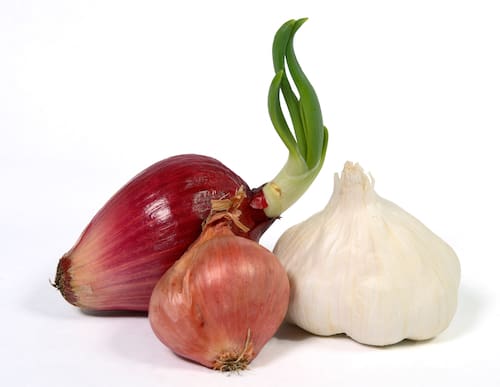
Since guinea pigs don't eat onions or garlic, that eliminates the possibility of feeding most of your cooked food, as well, since most recipes call for either.
However, regardless of this "avoid" list, it's important to feed your guinea pig a diet full of high-quality pellets, hay, and treats of fresh veggies and frequent pieces of fruits.
Things to Consider When Buying Guinea Pig Food
Lastly, to help you finalize a decision on one particular guinea pig food brand, consider the following features to help you pick out the best purchase for your pet:
The different types of guinea pig food are made with different ingredients; therefore, ensure that you purchase the food backed by the healthiest ingredients.
Foods with high-quality ingredients will give your guinea pig the nutrition they need for their growth. The most suitable food for your guinea pig should be one that is free from artificial flavoring, synthetic colorings, as well as chemicals.
Guinea pig food normally come in a bag size—which is generally somewhere between 5 lb and 10 lb. Smaller size bags will be easy to store and are generally preferred for younger or smaller guinea pigs.
However, a larger bag can help decrease the need to head to the pet store as often as you would need to with a smaller size.
Just like humans, the needs for guinea pigs change with age.
Depending on where they are in their life cycle, it is important to give your pet the food that they need at their current age. If your guinea pig is 1 year old and above, they actually can be fed adult food.
You should also consider the type of hay that you give your guinea pig. Hay has dry grass in it, but there are different types of grass, meaning they have different nutritional values.
FAQ on guinea pigs eating and feeding
The following are answers to the most frequently asked questions by guinea pig owners—especially first-time guinea pig parents:
Conclusion
Finding the right food for your guinea pig is important for their health and growth.
Since there are so many different types and brands foods in the market for guinea pigs, we hope that this guide has helped you make a decision.
Make sure that the ingredients are safe and nutritious for your pet. Feeding your guinea pig the right amounts of food is also important. Following the above guide will enable you to choose the best food for your pet and follow the dietary regulations to keep them healthy.
*Disclaimer: As an Amazon Associate we earn from qualifying purchases. That means we receive a small commission from Amazon if you should decide to purchase a product through our link - but don’t worry, you won’t be charged any extra for it.
We only recommend products we truly believe are of value to you, and we believe in ourselves. Our goal is to make this site a truly valuable resource for all pet owners.



